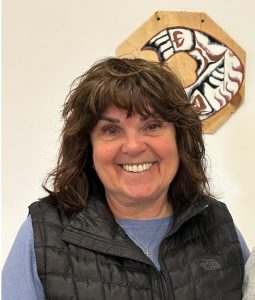Germany: Education Field Experience
Overview
| Location | Freiburg, Germany |
| Arrival Date | April 27, 2025 |
| Teaching Dates | April 28 – May 16, 2025 |
| 5 Credits | EDUC 442 (Community Field Experience) |
| Eligibility | Teacher candidates completing their practical requirement |
| Approximate Program Fee | $3,100-$3,500 |
Application for this program is now closed
Program Information
ABOUT THE PROGRAM
The Pädagogische Hochschule Freiburg was one of UBC’s first international CFE partners. Usually, students are assigned to a school in or near Freiburg, where they work with students that are in Elementary and Middle Years. The candidate will be placed in a grade and subject near the age group and subjects they taught in Canada. Candidates will also, through seminars and presentations, learn about the German K-12 school system and the German Teacher Education program
Some potential CFE activities include:
- Observe, assist and teach in a grade/subject areas similar to that taught in Canada and teach English and English as a Second Language
- Observe and assist other grades and subjects in the school teacher specialists with field trips and after school activities
- Candidates will be in schools four days/week with extended weekends to be used for cultural events and travel in the area
ELIGIBILITY AND PREREQUISITeS
- Teacher candidates completing their practical requirements
- This placement has the ability to host French candidates
COURSEWORK
EDUC 442 (Community Field Experience)
A combined course and field experience designed to introduce students to the importance ‘place’ in the field of education. Emphasis is placed on the challenges and opportunities of living, working and teaching overseas, as well as the extent to which cultural understanding can enrichen that experience. The field trips in particular will highlight the intersections between culture and education in a variety of work settings.
Timeline
Teaching Dates: April 28 – May 16, 2025
Arrival: April 27, 2025
Expected weekly hours: Monday – Thursday 8am – 4pm
WEEK 1 (APR 28-MAY 2)
For the first few days, teacher candidates will usually observe classes being taught, assist whenever possible, and get used to the rhythm and flow of the school. By the middle to the end of the first week, teacher candidates are encouraged to try their hand at teaching lessons.
WEEK 2 & 3 (MAY 5-16)
In the second and third weeks candidates should be teaching one or two (or more) lessons a day, or teaching what they and their mentor teachers feel comfortable with. Candidates should also be assisting with any school projects, activities, or field experiences they are offered.
Program Fees
Program fees: $3,100-$3,500. The final program fee depends on the number of students in the program.
| Included in program fee | Not included in program fee |
|
|
AWARD
Every student accepted into this program will receive a $1,000 Global Seminar Award. This will be distributed to students in May 2025.
 Program Director Bio
Program Director Bio
Dr. Klassen obtained both her Bachelor of Education and Master of Arts degrees in Mathematics Education from the University of British Columbia, and completed her PhD in curriculum at the University of Toronto.
Dr. Klassen has teaching experience in the K-12 school system, colleges, and universities in British Columbia, Saskatchewan, Ontario and Nunavut.
Dr. Klassen’s focus on integrating and embedding Indigenous Education throughout the B.Ed. program is a crucial aspect of her leadership. Learning and unlearning are interwoven throughout all 16 months of learning, and the program begins and ends in ceremony. Dr. Klassen recognizes the importance of educators responding to the Truth and Reconciliation Commission (TRC) Calls to Action and how this shapes relationships between Indigenous and non-Indigenous peoples in Canada. She supported the development of the OSE Indigenous Education Council, a council that provides the Faculty with advice, recommendations, and guidance to enhance the program’s academic and field education.
Dr. Klassen is also known for her teaching innovation, which involves teaching numeracy education classes in-situ at local elementary schools. Her learner-centered approach focuses on alleviating math anxiety for teacher candidates, while they learn “about” teaching math “through” teaching math. This in-situ pedagogical innovation is a key feature of the B.Ed. program and involves ongoing organization, care, and attention with teachers and school administration and elementary students.
In 2023, in recognition of her dedication to teacher education, she received the ABCDE’s Teacher Educator Award.
